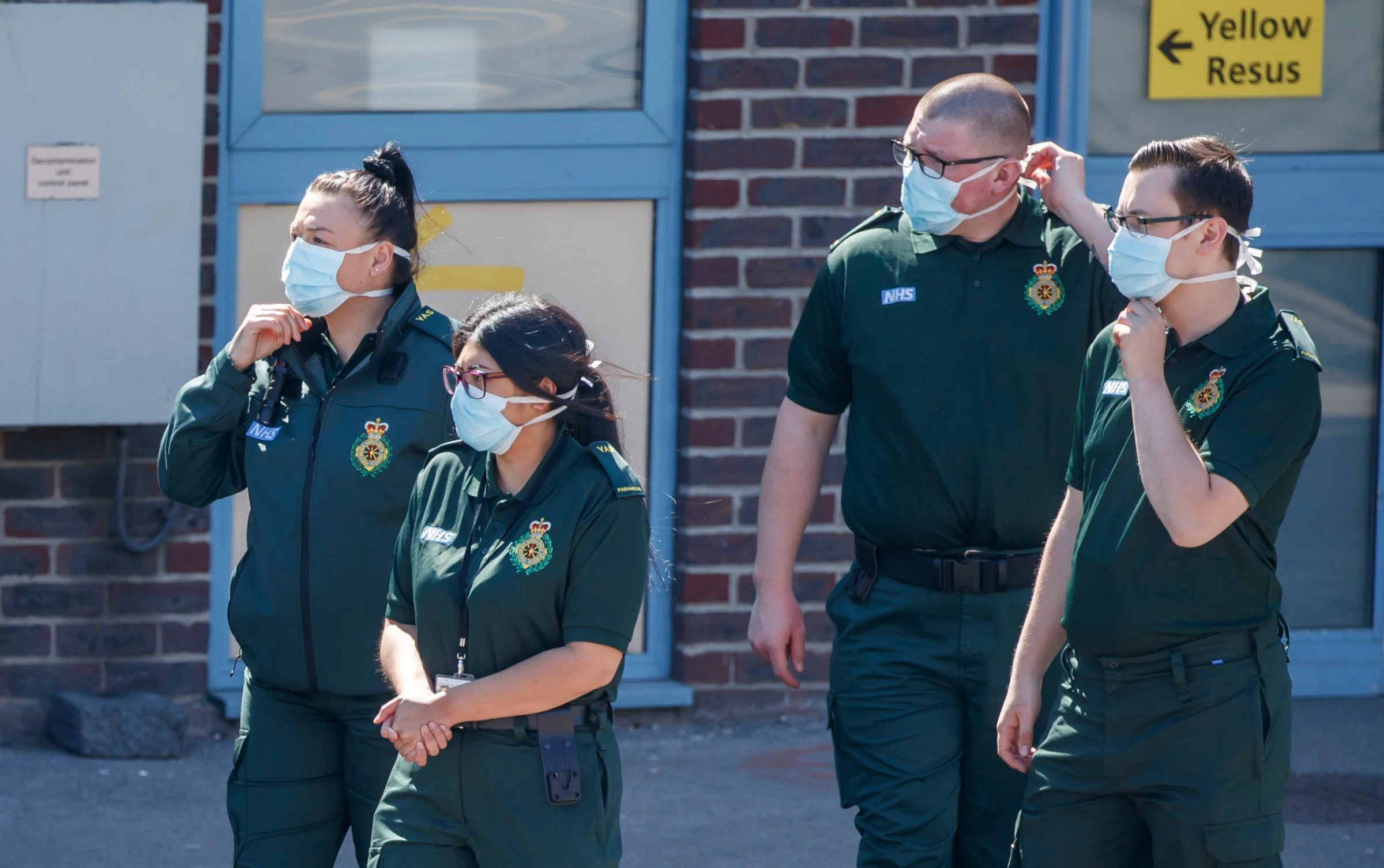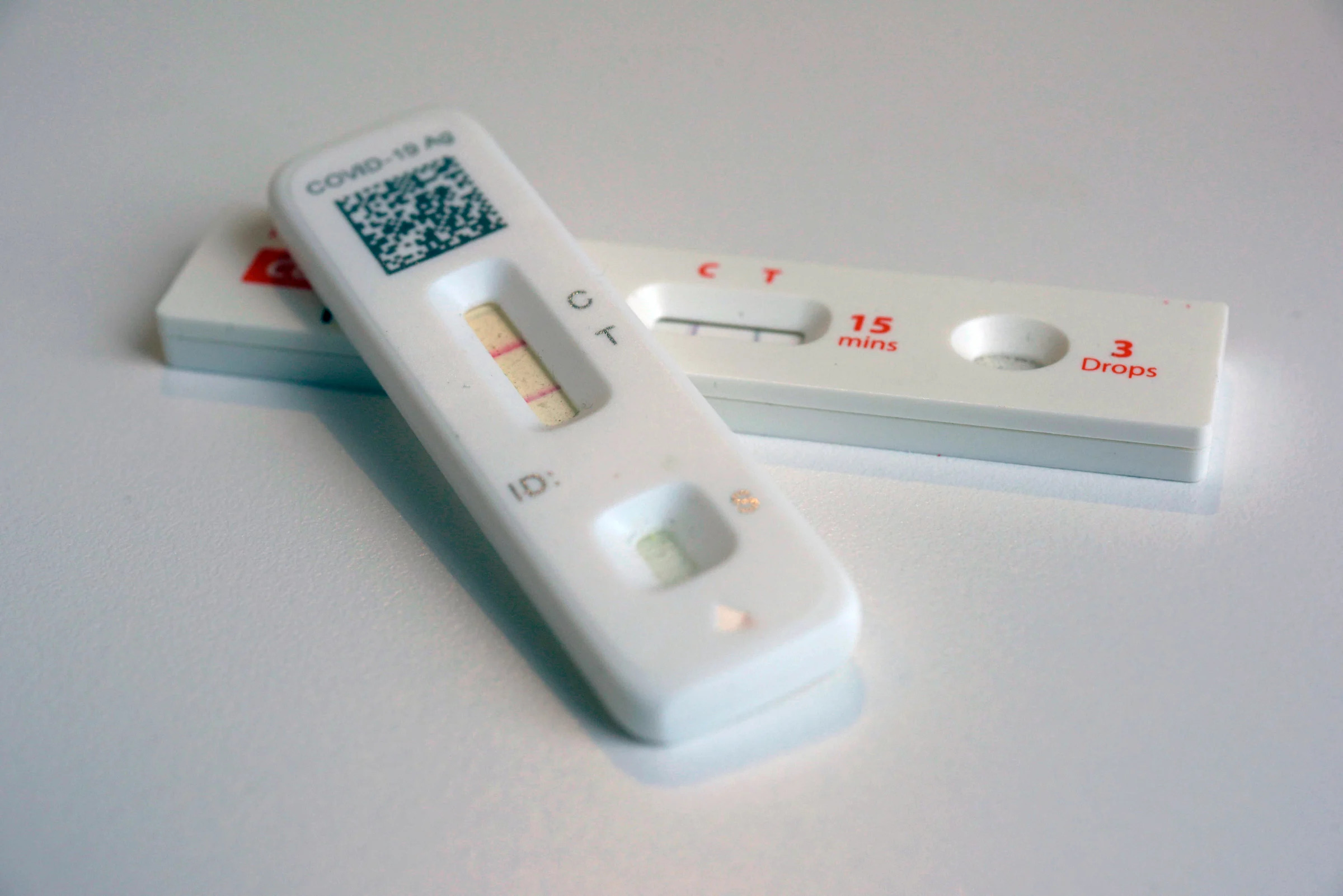Covid is back, and so are the Covid extremists. We are once again witnessing demands for the return of face masks in hospitals on social media, even in newspaper leader columns, though there is little evidence they prevented the spread of the virus in the first place.
Ambulance crew members wear face masks outside Doncaster Royal Infirmary.
The call comes after masks were made mandatory in hospitals and healthcare centres in Spain this week following a surge in respiratory illnesses. Spain’s minority coalition government imposed the measures despite opposition from many of Spain’s 17 autonomous regions, who argued the measures should be recommended but not obligatory.
In the UK, the usual suspects are once again sharing all the latest coronavirus data. Remember the R-rate? It’s currently 1.06, apparently. The lockdown zealots are also back posting graphs of Covid hospital admissions in England, which have increased by 7 per cent in a week (although acute bed occupancy has remained flat).
Because our intensive care departments aren’t overflowing, they have been forced to downplay the fact that few people are getting seriously ill from Covid, choosing instead to talk up the risks of long Covid.
What’s interesting about all this fretting is that no one really seems to care any more. Perhaps it’s the effect of a Christmas plagued by three different viruses: flu, the JN.1 variant of Covid and rhinovirus, which causes the common cold.
The latest data suggests that respiratory infections have been steadily rising since the summer in all age groups, but particularly among those aged between five and 14 who are then transmitting these infections to other family members.
Was it just me, or did everyone seem to have some sort of cough or cold over the festive period? And yet there was no widespread panic, presumably to the dismay of the face-mask fanatics.
The nation has reverted, it seems, to the rational position of accepting that people do just get ill sometimes, and in the most extreme cases, they unfortunately die.
Life expectancy may be down – not just because of people dying with Covid but because of it. The excess deaths figures suggest that it was lockdowns – which some Covid fanatics would have us live with in perpetuity – that wrought terrible damage on our health. We need to move on.
COVID-19: What's the latest advice for testing, isolation?
When should I test for COVID-19? How long do I need to isolate if I test positive?
COVID-19 cases in Ohio are declining after a recent surge, but health officials warn we are not out of the woods.
There were 10,239 cases in Ohio during the week ending Jan. 11, according to the state’s dashboard, which is updated every Thursday. That was down from 16,230 from the week before, and before that, 17,619.
But because not everyone who tests positive tells the government, experts say that's likely an undercount and there's more illness out there than we're aware of.
While cases are declining, respiratory illness season isn't over. Here's what to know about current COVID-19 guidelines from the Centers for Disease Control and Prevention.
When should I get tested for COVID-19?
If you were exposed to COVID-19 or have symptoms, which include fever, cough, shortness of breath, among others, you should get a test. Isolate until you can obtain one.
How can I get a COVID-19 test kit?
Antigen tests, aka at-home or rapid test kits, are the quickest way to find out if you're infected with COVID-19. It involves swabbing the inside of your nostril and placing the swab into a vial of liquid, which is then squeezed onto a test strip. Results will be produced in around 20 minutes or less.
Here are some options for at-home test kits:
-
Tests can be purchased at drug stores and other retailers for about $12 or less per test.
-
Free test kits are available through the federal government when ordered through www.covid.gov. Limit four per household.
-
Contact your local health department to find out if free tests are available.
A list of FDA-authorized test kit products can be found on the administration's website.
People can search to find no-cost testing near them through the CDC website, testinglocator.cdc.gov.
How long should I stay home?
Public officials have given different directions on how long to isolate since the onset of the pandemic in 2020. Now, it's based on a five-day rule.
Here's the CDC's advice: If you start getting symptoms, get a COVID-19 test kit. Stay home for at least five days and isolate from others in your home if you test positive. Day 0 is the day you start exhibiting symptoms. Day 1 is the next day.
If you were exposed to COVID-19 but have no symptoms you should isolate until they are given a negative test result. If you develop symptoms, the clock restarts at day 0 on the day of symptom onset.
Ending isolation depends on how serious your symptoms were. If you had symptoms and they are improving, you may end isolation after day 5 if you are also fever-free for 24 hours without the use of fever-reducing medication. If your symptoms are not improving, continue to isolate until you're fever-free.
Other tips: Wear a high-quality mask if you must go in public or be around others at home. If possible, use a separate bathroom from others in your household, and improve ventilation in the space.
Should I report my COVID-19 case to public health authorities?
No one is required to report a positive test result to public health agencies, but it gives officials more tools in their toolbox when they have an accurate case count. It helps them figure out how the virus is spreading and where case surges are happening.
Reports can be made to the CDC. You can also report your case anonymously on www.makemytestcount.org.
Where can I get a COVID-19 vaccine?
The latest COVID-19 shot isn't a booster; it's formulated for the 2023-24 season, similar to how the annual flu shot is aimed at the flu strain expected for that season. It's not too late to get a vaccine to protect yourself against COVID-19. You can get a shot anywhere from your neighborhood CVS to the local health department.
You can find a location in the database at www.vaccines.gov. Check with your health insurance if you have it to see if the vaccine is covered under your plan. Local health centers typically offer free vaccines if you don't have health insurance. You can find information about free options through the CDC's Bridge Access Program.
Are hospitals requiring masks?
It depends on the health care system. Check with your local hospital before you go.




